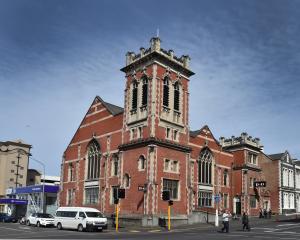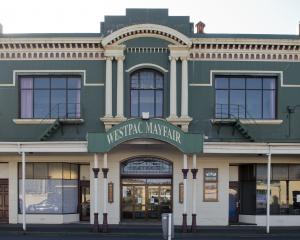More than 400 low-income Dunedin houses will be retrofitted with insulation before winter.
Dunedin City Council (DCC) has until the end of June to spend $750,000 of central government money on home insulation.
DCC energy manager Neville Auton estimates the Energy Efficiency and Conservation Authority (EECA) funding will enable 430 houses to receive ceiling, underfloor and hotwater insulation.
The project would improve the health of many Dunedin residents and provide a timely boost to employment, Mr Auton said.
It has been greeted with qualified enthusiasm by social service providers.
The EECA funding had been earmarked for a Northeast Valley home insulation project which had been delayed because of difficulties getting co-funders.
But the money was still available to be spent in Dunedin before the end of the financial year, Mr Auton said.
Negotiations were being finalised with EECA, cofunders and contractors to roll out the project throughout Dunedin in the time still remaining.
If discussions concluded satisfactorily, qualifying householders on low incomes would receive an insulation retrofit worth more than $3000 and only have to pay $200 or $300.
The total value of the project would be about $900,000.
Mr Auton hoped the retrofits would start by the end of March, leaving 90 days to insulate 430 houses, more than twice as many as were normally done in Dunedin in an entire year.
‘‘I don't think we will have any trouble getting contractors to do the work,'' Mr Auton said.
‘‘They may need extra staff which will help with employment, and that may be ongoing depending on EECA funding in the coming year.''
DCC would work with social service agencies and the Ministry of Social Development to identify householders for the project.
The insulated houses would reduce energy costs and improve the health of their occupants, Mr Auton said.
‘‘The health benefits of insulation are about four to one. That's about $4 million of health benefits from this for Dunedin over time.
‘‘And these houses will be insulated for the next 50 years, so the benefit is not just for the present owners.''
Presbyterian Support and Anglican Family Care spokeswomen welcomed news of the insulation project but questioned who would be eligible.
‘‘I think it is a fantastic idea,'' Presbyterian Support otago chief executive Gillian Bremner said.
‘‘It will certainly make a difference,'' Anglican Family Care child and family support services manager Kathy Dowall said. ‘‘But many of our clients are not home owners.''
‘‘The people who most need this are possibly renting. Will they qualify?'' Mrs Bremner asked.
‘‘We need to work that through with the EECA. Some may be included or some may be in addition to this funding,'' Mr Auton said.












